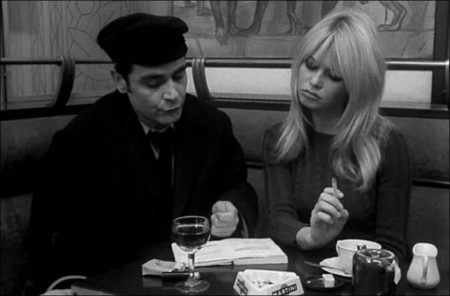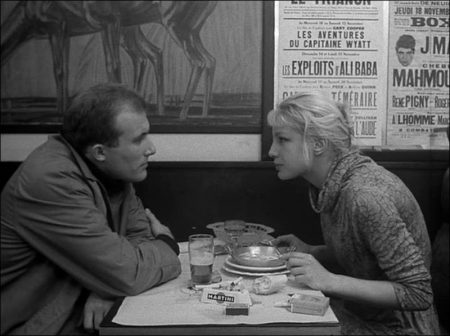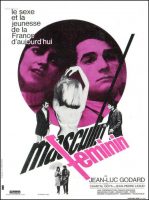A series of vignettes about youth culture in current day urban France are presented. These vignettes are tied together by a central thread, the story of twenty-one year old Paul, who witnesses or overhears many of these happenings. He has just completed his eighteen month mandatory military service, and thus is just beginning the real phase of being what would be considered his adult life. His thoughts affected by events around him like the Vietnam War, Paul gets a job writing through an acquaintance, Madeleine, an aspiring pop singer, which is contrary to Paul’s more traditional cultural leanings of baroque music and literature.
The two begin to date, and out of circumstance Paul eventually ends up moving in with Madeleine and her two roommates Elisabeth and Catherine. Paul, who believes he has fallen in love with Madeleine, doesn’t know what their future holds as he spends time with all three women, to which Paul’s friend, fellow writer Robert, aspires. As Paul changes careers to working for a public opinion polling firm, he may have what he considers a better understanding of life as he listens to the opinions of his contemporaries.
Director Jean-Luc Godard turns his attention toward “the children of Marx and Coca-Cola” in this romantic dramedy. At its heart is the Parisian love affair between a wayward idealist (Jean-Pierre Léaud) and rising pop star (Chantal Goya). In addition to its unique sense of self-awareness, the film provides a candid snapshot of 1960s youth culture.
Masculin Féminin (French: Masculin féminin: 15 faits précis, pronounced [maskylɛ̃ feminɛ̃ kɛ̃z fe pʁesi], “Masculine Feminine: 15 Specific Events”) is a 1966 French New Wave romantic drama film directed by Jean-Luc Godard. An international co-production between France and Sweden, the film stars Jean-Pierre Léaud, Chantal Goya, Marlène Jobert, Catherine-Isabelle Duport, and Michel Debord.
Léaud plays Paul, a romantic young idealist who chases budding pop star Madeleine (played by Goya, a real-life yé-yé girl). Despite markedly different musical tastes and political leanings, the two soon become romantically involved and begin a ménage à quatre with Madeleine’s two roommates, Catherine (Duport) and Elisabeth (Jobert). The camera probes the young actors in a series of vérité-style interviews about love, lovemaking, and politics. At times the main story is interrupted by various sequences and sub-plots, including a scene paraphrased from LeRoi Jones’ play Dutchman.
Masculin Féminin is considered by some critics to be representative of 1960s France and Paris. The film contains references to various pop culture icons and political figures of the time, such as Charles de Gaulle, André Malraux, James Bond, and Bob Dylan. Arguably the most famous quotation from the film is “This film could be called The Children of Marx and Coca-Cola”, which is actually an intertitle between chapters.
Due to the portrayal of youth and sex, the film was prohibited to persons under 18 in France—”the very audience it was meant for,” griped Godard. French journalist Georges Sadoul praised the film’s ability to speak to young people, while H. Chapier criticized the film but praised Leaud’s performance.
British critic Tom Milne called it Godard’s “most complex film to date.”[19] American critic Pauline Kael said that it was “that rare achievement: a work of grace and beauty in a contemporary setting.”[20] Andrew Sarris called it “the film of the season.” Judith Crist said that it had “flashes of original wit and contemporary perceptions.” Bosley Crowther disliked the film and called it “entertainment of only the most loose and spotty sort.” Gene Moskowitz called it “naive and knowing, irritating and engaging.” The film was selected for screening as part of the Cannes Classics section at the 2016 Cannes Film Festival.
Masculin Feminin (1966)
Directed by: Jean-Luc Godard
Starring: Jean-Pierre Léaud, Chantal Goya, Marlène Jobert, Michel Debord, Catherine-Isabelle Duport, Yves Afonso, Elsa Leroy, Brigitte Bardot, Antoine Bourseiller
Screenplay by: Jean-Luc Godard
Production Design by: Philippe Dussart
Cinematography by: Willy Kurant
Film Editing by: Agnès Guillemot
Music by: Jean-Jacques Debout
MPAA Rating: None.
Distributed by: Columbia Films S.A.
Release Date: March 22, 1966
Views: 297


